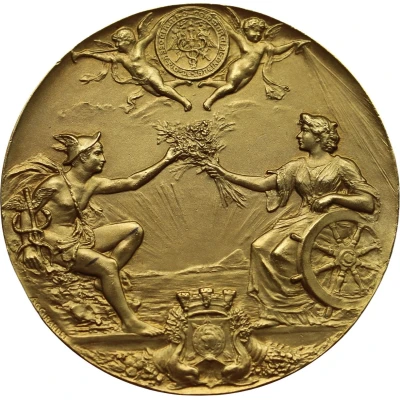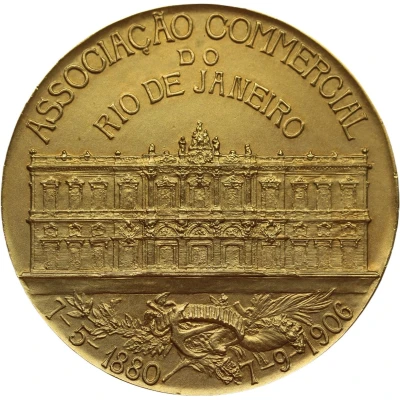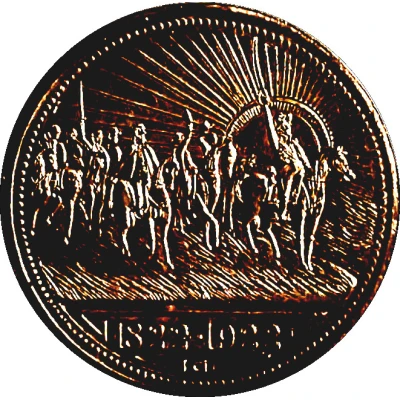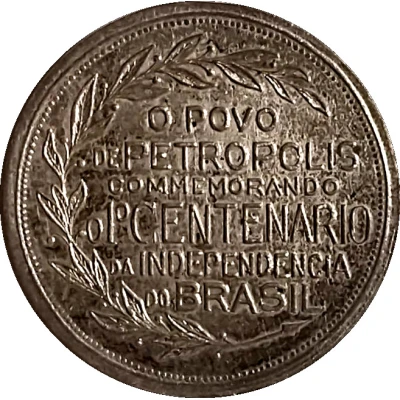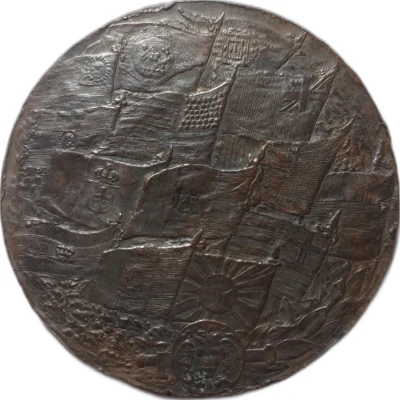
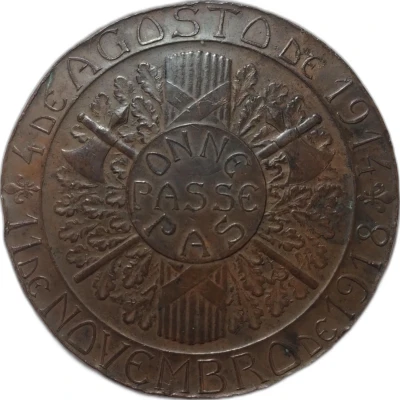

End of WWI
1918 year| Bronze | 170 g | 70 mm |
| Location | Brazil |
|---|---|
| Period | Republic of the United States of Brazil (1889-1967) |
| Type | Medals › Commemorative medals |
| Year | 1918 |
| Composition | Bronze |
| Weight | 170 g |
| Diameter | 70 mm |
| Thickness | 8 mm |
| Shape | Round |
| Updated | 2024-11-12 |
| Numista | N#410093 |
|---|---|
| Rarity index | 97% |
Reverse
On oak branches, the beam of sticks and two crossed axes the inscription “On Ne Passe Pas” and on the edge “4 de agosto de 1914 – 11 de novembro de 1918”.
Lettering:
On ne passe pas
4 de agosto de 1914
11 de novembro de 1918
Translation:
they shall not pass
4 august 1914
11 november 1918
Engraver: Augusto Giorgio Girardet
Comment
The italian Girardet was known as the father of brazilians engravers for his work over the years in the brazilian mint, his work is described in the book Augusto Giorgio Girardet : pai dos gravadores brasileiros, of the author Adalberto Pinto de Mattos.
Bust of Antônio Augusto Girardet, Praça Monroe, Cinelândia, city of Rio de Janeiro, Brazil
picture from Corrêa Lima
https://commons.wikimedia.org/wiki/Category:Works_by_Corr%C3%AAa_Lima
On ne passe pas: the widespread use of the slogan originates from the 1916 Battle of Verdun in the WWI when french army General Robert Nivelle urged his troops not to let the enemy pass. The simplified slogan of "they shall not pass" appeared on French war propaganda posters, most notably by French artist Maurice Neumont in the last year of the war after the Allied victory at the Second Battle of Marne.
On ne passe pas!. The 1918 French propaganda poster by Maurice Neumont that reads: "Twice I have stood and vanquished on the Marne. Brother civilian, the underhand offensive of 'white peace' will attack you in turn; and like me you must stand firm and vanquish. Be strong and shrewd. Beware of Boche hypocrisy."
https://digital.library.temple.edu/digital/collection/p16002coll9/id/3688/
